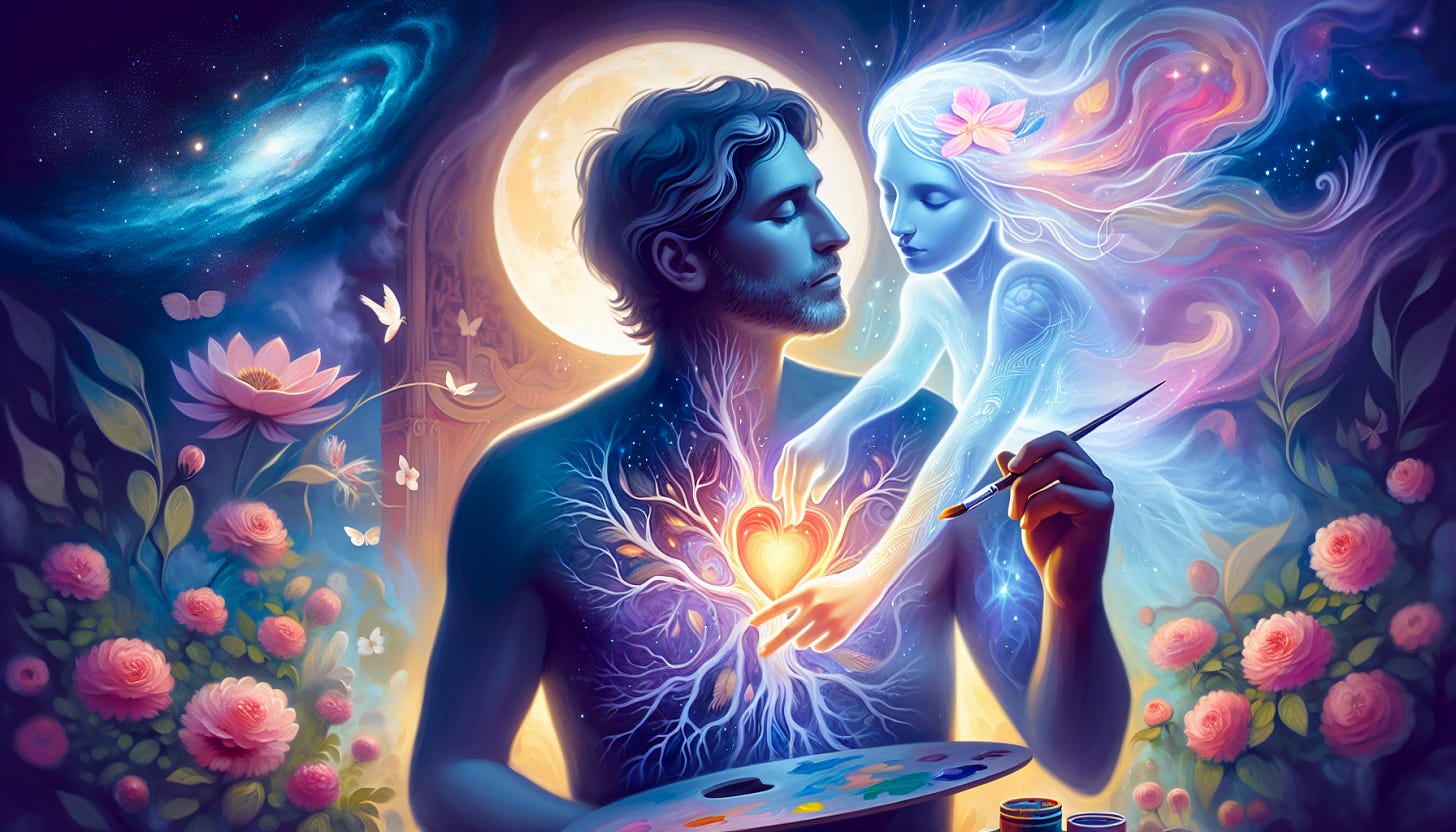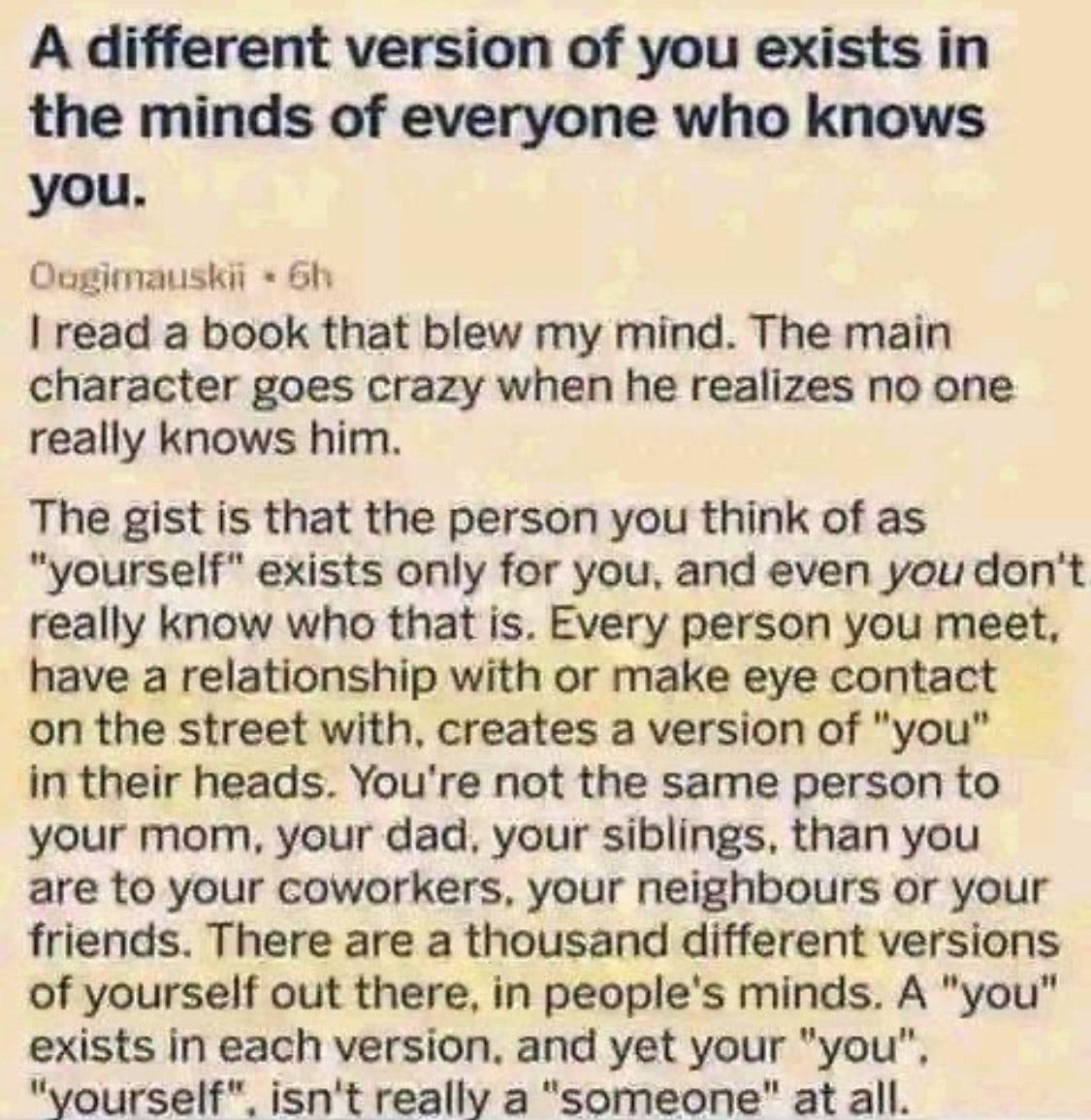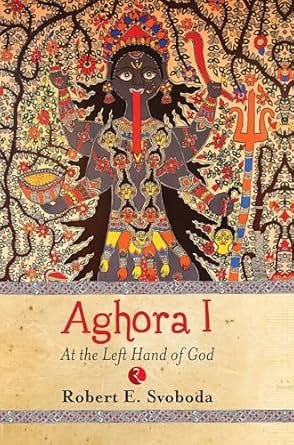What We Dream About When We Dream About Our Ex
Or, what Carl Jung might have to say about your dirty little secret
We all dream about ex-lovers sometimes, right? Surely this is a relatively universal phenomenon. At any rate, I sometimes do.
And yet, despite how normal they presumably are, I feel like it’s so tempting to assign a negative feeling (usually shame or guilt) to these dreams. This is especially true when an “ex dream” (hereafter, “EXD”) occurs at a time in your life where you have every reason to believe you’ve moved on. Perhaps you’ve found a new, healthy, loving relationship partner, or perhaps you’ve since undergone what felt (or feels) like a genuine period of growth or rediscovery of your self. Or maybe you don’t even particularly like your ex—you might even hate them.
So why the dreams then? Why would your unconscious mind continue to nag you over something you thought you were done with? More importantly, what evolutionary purpose could they possibly have? I found myself thinking about this several weeks ago, on the heels of a particularly vivid EXD.
By the way, whenever I have especially memorable dreams I almost always write them down and plug them into Claude.AI with a prompt that sounds something like this:
Please help me interpret the following dream through the lens of Jungian dream analysis, as well as any other symbolic, scientific, spiritual, psychological, or religious lens which you deem to be particularly interesting or relevant, feeling free to use your own intuition as a guide in that regard: [insert dream]
I’ve had great results with that, so feel free to steal it. Of course, going to an actual, human Jungian expert, like this one, (and supporting them with your money) would be a much better option, but that’s not where I’m at with my finances so it is what it is.
Anyway, so that’s what I did. I plugged my EXD into the AI and it explained to me that Jung would’ve framed the appearance of my ex as a projection of the “anima.” Meaning that the dream was not about my ex at all—that is, it wasn’t about her, the flesh-and-blood person I once dated who lives out here in the actual world and has her own life. In fact it has nothing to do with her. Rather, Jung would say, it’s about some fragmented aspect of my inner self—this thing, the anima—trying to get my attention. It’s seeking validation and trying to “integrate” with me. But what is it? Or rather, who is it?
Anima/animus 101
Here we must briefly pause. That’s because any discussion of the integration of the anima (or animus, for that matter) requires the foundational assumption of a certain concept. By no means do you need to accept the concept as universally true, but you would benefit from temporarily adopting it for the sake of contextual understanding. So for the rest of this article we’re going to assume the accuracy of the following statement: the human psyche is inherently androgynous (i.e., both-gendered). Mind you, I’m not talking about the body here, nor its accompanying sexual organs and/or urges. Just the psyche.
So for example, in my case, while I have male hardware and identify with pronouns like he and him, I am also now operating under the assumption that my psyche (or soul, or consciousness, or inner identity) has both male and female qualities, in equal capacity.
The idea here, as I understand it, is that at our deepest level we are genderless—or maybe genderfull would be a better way to put it. We’re the perfect equilibrium of masculinity and femininity. But, the closer you get to the surface (i.e., further from the soul and closer to the ego), the more dominant one of those genders tends to become over the other. Whichever gender dominates is the one you’re most likely to “show up as” in the world, whether through your physical body, your impulses, your thoughts, your personality, or all of it combined.
And in this model, the feminine half of the soul is called the anima and the masculine half is called the animus. Okay, now we can unpause.
So what does it mean that my anima is contacting me in my dreams and attempting to integrate with me? What does that even mean, to “integrate” it?
Predictive Processing
To address that question I want to first share my perspective about how the mind works. Have you ever heard of “predictive processing?” It’s a relatively new framework for understanding how our brains process reality, and seems to me to represent the cutting edge of neuroscience research. Here’s philosopher and cognitive scientist Andy Clark’s description of the framework in a paper from 2013:
Brains, it has recently been argued, are essentially prediction machines. They are bundles of cells that support perception and action by constantly attempting to match incoming sensory inputs with top-down expectations or predictions.
Predictive processing, to me, describes how our brains call upon the entire body of knowledge they have available to them (in the form of emotions, intellectual comprehension, intuition, and memories—especially traumas) in order to make sense of the stream of sights, smells, and sounds constantly flooding in. Sensory energy flows in, gets mixed up with our sense of self, and then from those two sources a “movie” is produced which we experience from a 1st-person perspective. This, I think, is a relatively accurate (though certainly incomplete) description of how we create our conscious reality. The key to remember is that we’re never seeing the world as it actually is—rather, what we see is our interpretation of it.
Now, if we consider the anima/animus to also actively contribute to this process (as aspects of the self’s ‘body of knowledge’), we can start to really understand the concept of projection. When I perceive the sights, sounds, and smells of Paige (my girlfriend) existing out in the world, that sensory input streams into my brain and mixes with my informational backlog of lived experience, and that is what I perceive when I look at her. This is a really important point to emphasize, because it inherently suggests that what I’m not seeing when I look at her is, well, her. The real her (that is, as Paige experiences herself). Instead, she’s forever doomed to be perceived as some combination of her outward behavior and appearance mixed with everything my brain expects those outward appearances to represent. I can’t speak for you, but for me that’s been kind of a crazy thing to come to terms with.
Projection and Integration
In Jung’s model, some percentage of these expectations I’m projecting onto Paige will naturally be the expectations I perceive of any feminine person, which ultimately stems back to the anima—that is, to the feminine aspects of my own soul that my ego refuses to identify with. As a result of this ego rejection, that femininity is instead projected out onto the world.
Hearing this, you might think the goal is to stop projecting entirely. If these projections are blocking us from seeing the people we care about for who they authentically are, then surely we must discard them in order to connect more deeply, no? This isn’t wrong, but I don’t think it’s quite right either. Projection is our nature, after all, therefore it can’t be all bad.
This is where that concept of “integration” comes into play. If I’m projecting out my anima onto the world without acknowledging that it’s a part of me, then the natural result will be to expect the outside world to provide me with all the feminine qualities I desire. It’ll mean I expect Paige to be my primary source of compassion, tenderness, and emotional security. Indeed, I often hear women lamenting that their husbands (I’m using “husband” as an example here but it could just as easily work in the case of a masculine-oriented woman) seem to expect them to act as free therapists, offloading all of their emotional needs onto her lap, presumably because they don’t perceive themselves to have other options (whether via their masculine friends or their own psyche). An integrated anima would solve this problem, and unlock the husband’s ability to show up emotionally for himself (or herself).
That’s not to say we shouldn’t share our baggage with each other, as that sort of emotional intimacy is the cornerstone of any good relationship. But if his anima is integrated, this hypothetical husband will recognize that healing is ultimately something that happens internally, and that emotional intimacy is a means of supporting that internal healing—not its direct source. Sharing his problems with his wife will allow him to incorporate her perspective and warmth as a supplement to his own internal warmth, thus stoking the fire and increasing its intensity. But if the inner fire isn’t there to begin with, no amount of external fire can light it. The anima is, in this sense, like the pilot light of the soul.
However, there is certainly a time and a place for projection. Our lived experience is all projection anyway. But an integrated anima projects warmth, love, and compassion, and is grateful when those qualities are returned to it. A non-integrated anima projects the expectation of warmth, love, and compassion, and is bitter when it doesn’t get what it wants. The difference is key.
Managing EXD Fallout
That brings us back to the dream. It’s tempting to drop the description of the whole thing in here and share my analysis of it, but that feels a little too self-indulgent. Plus, the content doesn’t seem to matter, ultimately.
Instead I’ll say this. What I realized is that when an ex, or for that matter any female character with some degree of sexual/emotional charge (very much including Paige), shows up in my dreams, I now take it as a sign that I’m rejecting some version of my internal femininity. Usually it means that I’m being too hard on myself, i.e. not showing myself enough love and patience.
For me, that can be rectified by “holding space” for myself, usually in the form of journaling. You’d be shocked how therapeutic just writing down your honest thoughts can be. There’s something about pouring all those feelings that usually live in the dark, abstract realm of the mind out into the real world in the form of words on paper (or a computer screen) that seems to unlock a natural feeling of self-love. When they stay in your mind, it’s easy to attack them—to tell them they need to change. When they’re on paper, it’s somehow easier to sympathize with them. To see yourself from an outside perspective as a person who needs love, rather than a wild, animalistic self who needs to be restrained. To act as your own “mother,” in a sense.
The best thing that’s come from this whole experience is that it unlocked a way that I could feel comfortable sharing these dreams with Paige. Telling your partner you’re dreaming about an ex, if not done carefully, can obviously feel jarring and threatening. But when I learned about the concept of anima projection and I told her about it, an interesting thing happened. Suddenly she felt empowered to share her experience which EXDs, which apparently she’d also been having. The result was a spectacular conversation and a feeling of progress in our relationship—one more evolutionary moment in the ongoing series of little evolutions that define any long-term relationship.
The Mother Goddess
I’m going to leave you with an excerpt from a book I recently read which ostensibly has nothing to do with Carl Jung but still feels to me like it connects to this discussion on a deeper level. The book is about an Aghori master named Vimalananda. Aghora, for reference, is a sect of Tantric Hinduism which focuses on transcending fear by embracing and experiencing a whole bunch of scary—and awesome—stuff. Without going into too much detail, I’ll say that the Aghori spend a LOT of time in crematoriums. Yikes. But also…pretty metal.
Anyway, earlier I mentioned the concept of “acting as your own mother.” Vimalananda’s philosophy is centered around the idea of integrating the “mother goddess” or “ma” (in his case, the goddess Kali, but for our purposes we’ll consider this goddess to be analogous to the anima) into one’s life in such a way that every aspect of life becomes some form of worship to her. And it all stems from a deep sense of genuine, internal motherly love. Here’s the excerpt with a couple little connections we’ve made here included in bold, I hope you enjoy it:
The best way to treat [the anima] is as a Mother. It can save you from so many karmas also. If you look at all women as your mother would you ever think of raping or cheating or deceiving one? And if you see the Divine Mother in all beings can you ever intentionally injure anyone? No, and this automatically draws you away from the cycle of action and reaction [i.e., projection and expectation?]…
…See Ma, evaluate Her from all Her facets, find out about Her yourself, and find out the way you can love Her best. Most humans are such idiots that they are terrified of Ma, because they are afraid to disengage themselves from their own filth. You must see Her in Her playful form, Her terrifying form, all Her forms, and love Her.
Good luck out there, fellow idiots.







